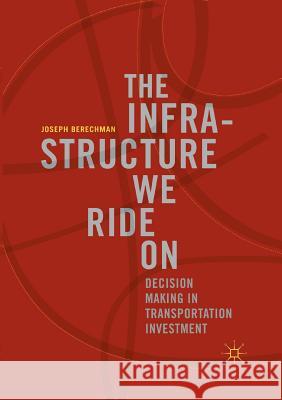The Infrastructure We Ride on: Decision Making in Transportation Investment » książka
topmenu
The Infrastructure We Ride on: Decision Making in Transportation Investment
ISBN-13: 9783030090340 / Angielski / Miękka / 2019 / 194 str.
Kategorie:
Kategorie BISAC:
Wydawca:
Palgrave MacMillan
Język:
Angielski
ISBN-13:
9783030090340
Rok wydania:
2019
Wydanie:
Softcover Repri
Ilość stron:
194
Waga:
0.26 kg
Wymiary:
21.01 x 14.81 x 1.14
Oprawa:
Miękka
Wolumenów:
01
Dodatkowe informacje:
Wydanie ilustrowane











